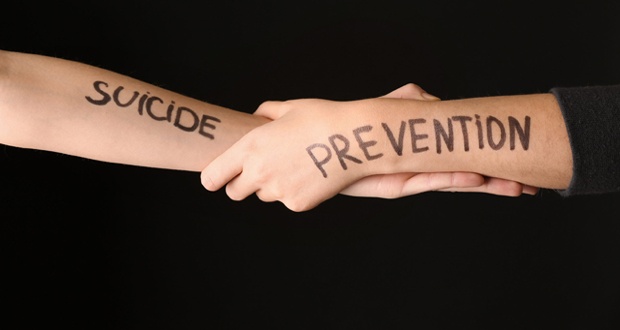Time to Elevate the Conversation Surrounding Suicide
September is Suicide Prevention Month, and during this time it is essential to elevate the conversation surrounding suicide. Suicide is a complex issue that has impacted millions of people today. According to the CDC, suicide is a leading cause of death in the United States and is responsible for nearly 46,000 deaths in 2020. Suicide affects all groups and ages with either thinking about suicide or attempting suicide. There are various factors that contribute to suicide for those with or without mental illness. Risk factors that may increase the possibility of suicide include the following.
- Mental illness
- Substance use disorder
- Serious illness
- Family history of suicide
- Relationship problems (e.g., sexual violence, adverse childhood experiences)
- Barriers to healthcare
- Easy access to lethal means (e.g., firearms, medications)
READ: What are the advantages of private nursing?
It is important to note some people may have these risk factors but do not think about or attempt suicide. However, suicide is a critical public health problem that can be preventable. With access to the appropriate information and resources there can be a decrease in suicidal thoughts or actions.
Risk factors for suicide are important to keep in mind, if someone is showing warning signs of suicide they may be at higher risk for danger and need immediate attention. As we educate and learn about suicide, it is important to be honest and directly address the subject. Along with continuing the discussion around suicide. According to research, more than one in five people who died by suicide has expressed their suicide intent. Knowing the warning signs that someone may be at immediate risk, may save a life. Research has shown there are various types of warning signs a person can display. The following are warning signs the person may show.
Talking About
- Wanting to harm themselves
- Feeling trapped
- Feeling hopeless
- No reason to live
- Being a burden to others
Actions or Behaviors
- Withdraw from family and friends
- Give away important possessions
- Anxiousness
- Changing eating or sleeping habits
- Making a plan and/or looking for ways to harm themselves with lethal weapons
Suicide is not a normal response to stress. Suicidal thoughts or actions are a sign of extreme distress and should not be ignored. With regards to recognizing warning signs, family and friends are typically the first people to notice them from their loved ones. They can take the first step to helping someone they care about find mental health treatment. Before talking with someone you may be concerned about, have suicide crisis resources available.
The conversation may not be easy, but is crucial to potentially save someone you love. Let the person know you care and that they are not alone. To begin the conversation, ask directly and privately about suicide. “Are you thinking about harming yourself?” or “Are you thinking about ending your life?” It is important to know that asking these questions will not increase the rate of suicide or suicidal thoughts. These questions assure the person at-risk that you are not afraid to talk about it. It is important to listen carefully to the person’s response and allow emotional expression. Being able to talk openly about their thoughts and feelings may reduce their suicidal thoughts. While in communication with the person, it is important to not leave the person alone and check their physical environment. Removing any lethal means can help keep them safe. Reassure the person that help is available and they may benefit from professional help.
After the immediate suicidal crisis has passed, continue to stay connected with that person. Having support is vital for the person to remain on the recovery track. Research has shown that the number of suicide deaths decrease when a person follows-up with those who are at-risk. It takes a lot of courage to help someone who is suicidal. Witnessing someone you love who is dealing with thoughts about ending their own life can come with challenging emotions. As you are helping a suicidal person, it is important to not forget to take care of yourself.
Let us continue to grow the conversation around suicide and have ongoing education about it. If you are someone you know is struggling with suicide, take the situation seriously. Encourage the ones you care for to reach out for help.
Your mental health matters, contact any of these resources for assistance.
– By Anabel Feauto, Health Promotion Specialist
Valeo’s Crisis Center located at 400 SW Oakley Avenue. Valeo’s Crisis Center never closes, it is a walk-in emergency clinic with no appointment necessary. Valeo’s 24-Hour Crisis Line is 785-234-3300.
National Suicide Prevention Lifeline: Call or text 988
Text HOME to 741741 to connect with a counselor for free
Stormont Vail Behavioral Health Call 785-270-4646
Topeka Police Department Behavioral Health Unit Call 911
Valeo Behavioral Health Care
785-233-1730 • www.valeotopeka.org
Crisis Services
400 SW Oakley
Topeka, KS 66606
24 Hour Crisis Line
785-234-3300
National Suicide Prevention Life Line
1-800-273-8255
Shawnee County Suicide Prevention Coalition
Family Service and Guidance Center (18 and under)
325 SW Frazier
Topeka, KS 66606
24 Hour Crisis Number
785-232-5005
Healing after Loss to Suicide Group (HeALS)
Sandy Reams – Group Facilitator
Topeka.Heals@gmail.com
785-249-3792





